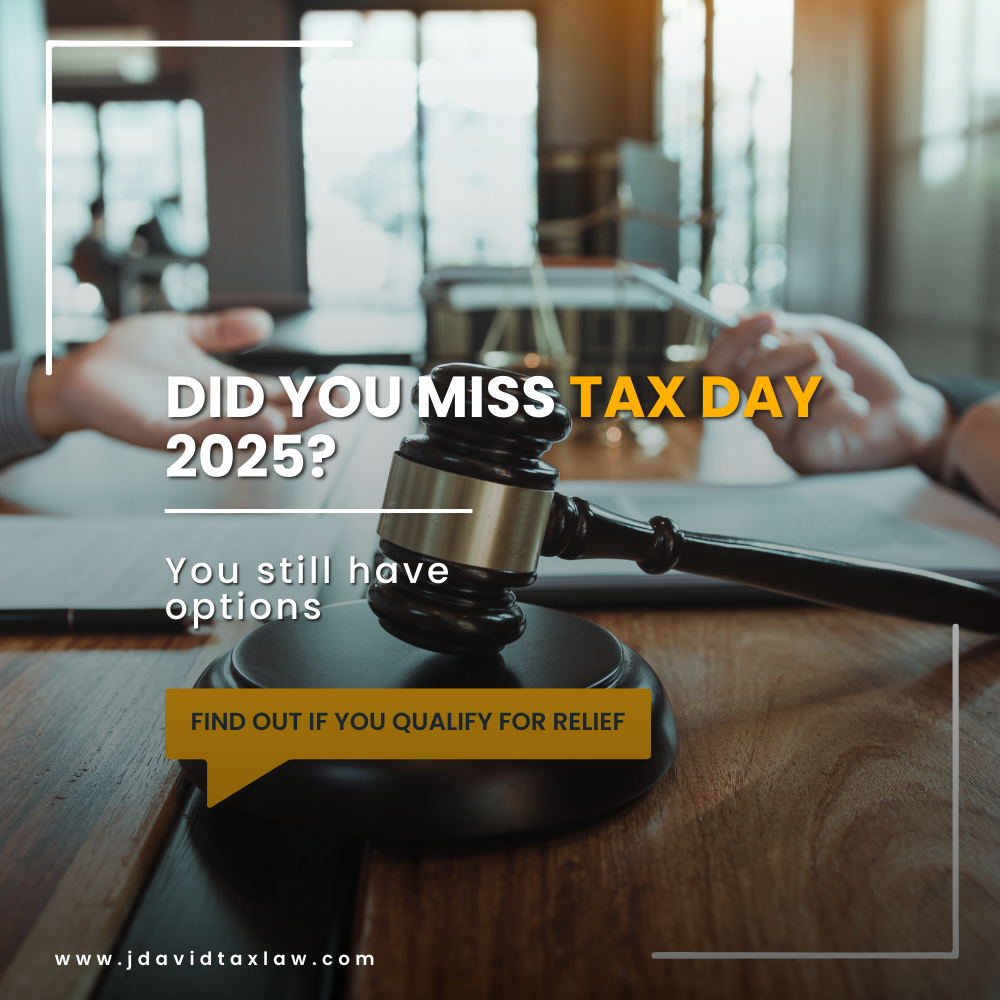
Yes, a tax attorney can negotiate with the IRS on your behalf,reducing penalties and resolving tax debt.Call our IRS tax relief attorney at (888) 342-9436.





According to AICPA & CIMA, nearly three-quarters (73%) of married or cohabiting Americans say financial decisions are a source of tension in their relationship. When debts become unmanageable, this stress can reach a breaking point.
One potential relief could be achieving currently non-collectible status with the Internal Revenue Service (IRS). This blog will discuss how freezing collection activities not only protect your assets but also provide the necessary time to reorganize your financial life.
Currently Not Collectible (CNC) status is a designation the IRS can grant to taxpayers who prove that their monthly necessary living expenses exceed their monthly income. So when a taxpayer is placed under this status, the IRS temporarily halts all collection activities. This includes tax levies or garnishment of wages. Temporarily meaning that the IRS has halted collection efforts, the Currently Not Collectible (CNC) status allows taxpayers to defer payment until their financial situation improves or indefinitely until the tax debt expires.
The determination of CNC status hinges on a strict assessment of financial hardship. To qualify, taxpayers must provide detailed documentation that demonstrates their inability to pay. This includes:
Complete and accurate tax filings up to the current date.
Detailed financial statements outlining income and living expenses.
Proof of expenses such as rent or mortgage, utilities, food, transportation, and healthcare.
The IRS utilizes national and local standards to evaluate the reasonableness of these expenses. Any expenditure exceeding these standards may not be accepted unless justified as necessary.
Note: This status may or may not be a permanent solution and does not erase the debt. Instead, it only postpones collection actions until the taxpayer’s financial situation improves or until the tax debt expires.
Do you know the IRS might file a Notice of Federal Tax Lien during a temporary delay? Schedule your free consultation today to learn how to avoid filing a federal tax lien and protect your assets.
The IRS guidelines for CNCs are established to provide a necessary safeguard for taxpayers experiencing financial hardship. This ensures that they are not forced into impossible financial situations due to tax liabilities they are unable to pay.
The guidelines protect a taxpayer from further financial distress that could result from aggressive collection actions (i.e. wage garnishments or levies). This allows the IRS to manage its resources by focusing its efforts on cases where payment is feasible.
Here’s a quick overview of these guidelines:
The IRS will conduct a thorough financial analysis using forms such as Form 433-A (Individuals) or Form 433-B (Businesses), and Form 433-F (Collection Information Statement). This analysis assesses the taxpayer’s income, expenses, and asset equity. Form 433-F is used in less complex individual cases and allows for a quicker submission of financial information to determine feasible payment options. The aim is to determine if the couple has any disposable income after meeting basic living expenses based on national and local standards.
To qualify for IRS CNC status, a couple must be compliant with all filing requirements. This means all past tax returns must be filed and the taxpayer must not have significant unreported income.
Taxpayers must provide detailed documentation of their financial situation. This includes proof of income, necessary living expenses, and any other financial information to support their claim of inability to pay.
Being placed in IRS currently not collectible status doesn’t permanently stop the collection process. The IRS periodically reviews the taxpayer’s financial situation, once every one to two years. This is to determine if their financial status has improved, potentially reinstating collection efforts if the taxpayer’s ability to pay has increased.
While in IRS uncollectible status, the IRS suspends all active collection activities. However, the tax issue remains, and penalties and interest will continue to accrue. The IRS may also apply any future tax refunds toward the debt.
Did you know our tax debt attorneys have secured a full waiver of $150,888 in penalties and interest for one of our clients? Click here to check out our penalty abatement services.
If the taxpayer has assets that could be liquidated to cover the debt, the IRS might not grant CNC status. The taxpayer must demonstrate that selling assets to pay the debt would cause economic hardship.
Applying for IRS non collectible status with the IRS involves a streamlined process to demonstrate the inability to pay due to your financial condition.
Here’s a short guide to CNC application process:
Step 1: Ensure you’re up-to-date on all tax filings. Being current with your tax returns is essential for eligibility.
Step 2: Fill out Form 433-A (for individuals) or Form 433-B (for businesses), or Form 433-F (simplified version for individuals),providing detailed financial information including income, expenses, and asset details.
Step 3: Collect necessary documents such as bank statements, pay stubs, bills, and any other evidence of your financial state and necessary expenses.
Step 4: Send your completed forms and supporting documents to the IRS. Include a personal statement detailing your financial hardship and the reasons for requesting currently non collectible status.
Step 5: Be prepared to respond to any follow-up requests from the IRS for additional information. They will review your submission and decide on your eligibility for non collectible status.
Mistakes in filling out IRS forms can lead to rejections, complicating your financial situation further. At J. David Tax Law, we not only help prevent these errors but also provide comprehensive assistance to ensure your forms meet all IRS requirements accurately.
IRS not collectible status offers temporary relief but may not always be accessible or the most strategic choice for every taxpayer. Various circumstances such as changes in financial status or IRS criteria not being met may require alternative debt relief options.
Evaluating these alternatives is essential as they may offer more sustainable solutions to financial hardships. Here’s a list of some of the tax relief options you can consider:
Installment Agreement
Filing for Bankruptcy
Generally, it’s wise to reassess your financial situation at least annually or whenever there is a significant change in your financial circumstances. Regular reviews will help ensure that your approach to managing debt remains aligned with your current financial capabilities and goals.
Married couples looking to the future while struggling with unpaid taxes need strategies that grow with their changing circumstances. Non-collectible status might be a temporary solution or permanent solution, but exploring long-term options such as penalty abatement and installment plans is very important . These not only help manage present financial stress but also pave the way for future financial stability.
Contact J. David Tax Law for expert guidance on Non Collectible status. Our team specializes in IRS CNC cases and can offer personalized advice to effectively manage your tax challenges.
Our tax relief attorneys specialize in tax problems and tax debt resolutions
Get started with a 100% free consultation

Yes, a tax attorney can negotiate with the IRS on your behalf,reducing penalties and resolving tax debt.Call our IRS tax relief attorney at (888) 342-9436.

Missed the April 15 Tax Day 2025 deadline? Learn about IRS penalties, late payment relief, and how to settle your tax debt. Call us at (888) 342-9436.

IRS grants a tax deadline extension to California wildfire victims.Can you delay filing and payment until Oct. 15, 2025?Call at (888) 342-9436 to find out.
Get IRS Tax Assistance Within 24 Hours